What's Hot: Did January Mark The Bottom For The DC-Area Housing Market? | The Roller Coaster Development Scene In Tenleytown and AU Park
 How Where You Live in DC Affects Your Upward Mobility
How Where You Live in DC Affects Your Upward Mobility
✉️ Want to forward this article? Click here.
A recently released study of Census data tracks where upward mobility is most likely to be enjoyed by a child born into various circumstances. For the District of Columbia, some of those results may be surprising.
Today, UrbanTurf explores five maps of DC from the Census study.
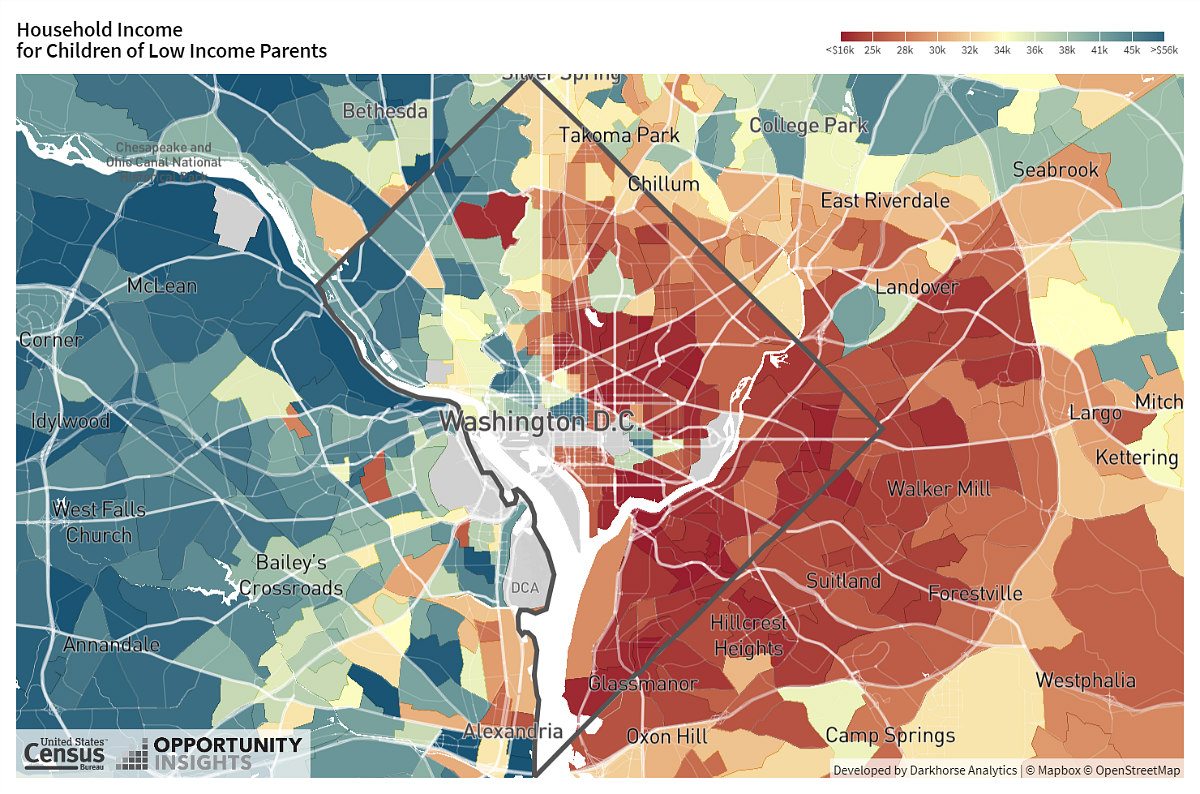
The map above shows the expected adult income for people who grew up in low-income households in each census tract in DC. While neighborhoods west of Rock Creek Park are typically thought of as affluent and therefore offering a wealth of opportunity, one census tract seems to be a glaring exception for those who were raised there: Tract 1301, which encompasses the area of Rock Creek Park south of Military Road, west of Beach Drive, and just north of the Forest Hills neighborhood. Adults who grew up in low-income households here are expected to have a below-median income of $22,000.
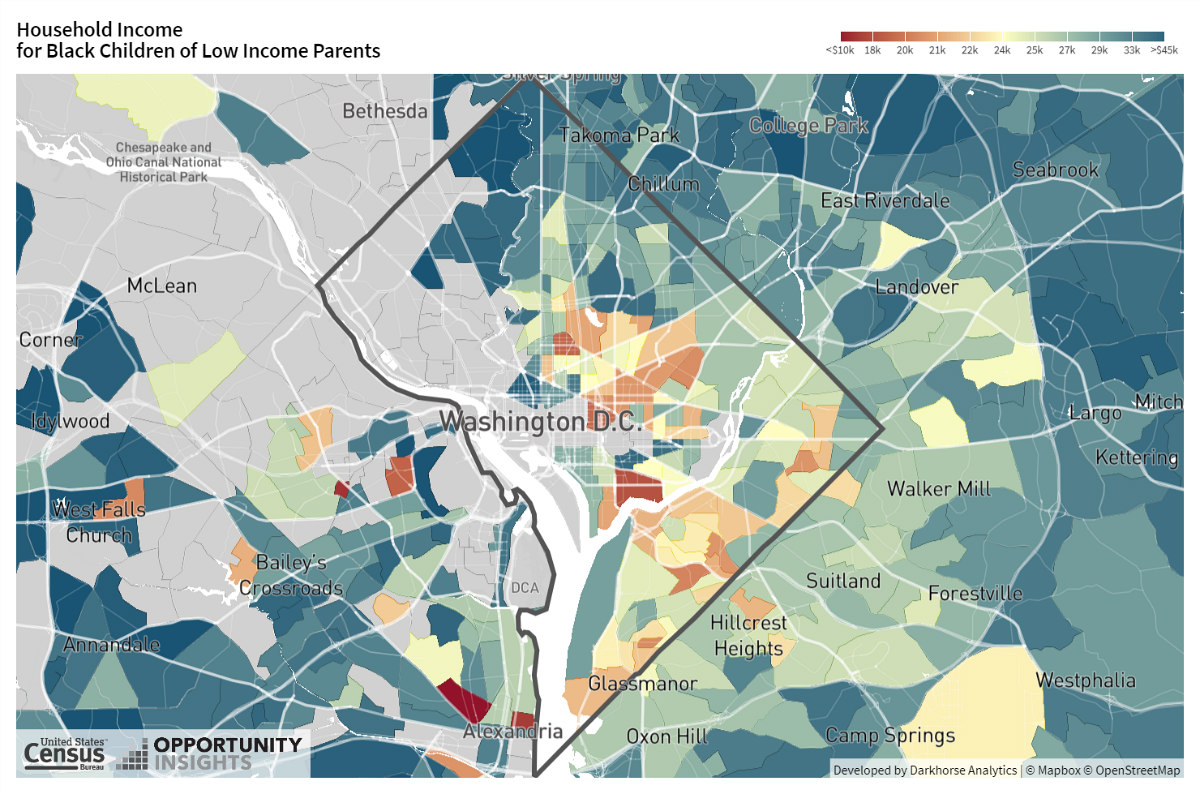
The second map illustrates that Black children raised in low income households tend to fare well in a good share of the city, although they are expected to earn below median income as adults in a few pockets of Southeast and in Northwest east of 16th Street.
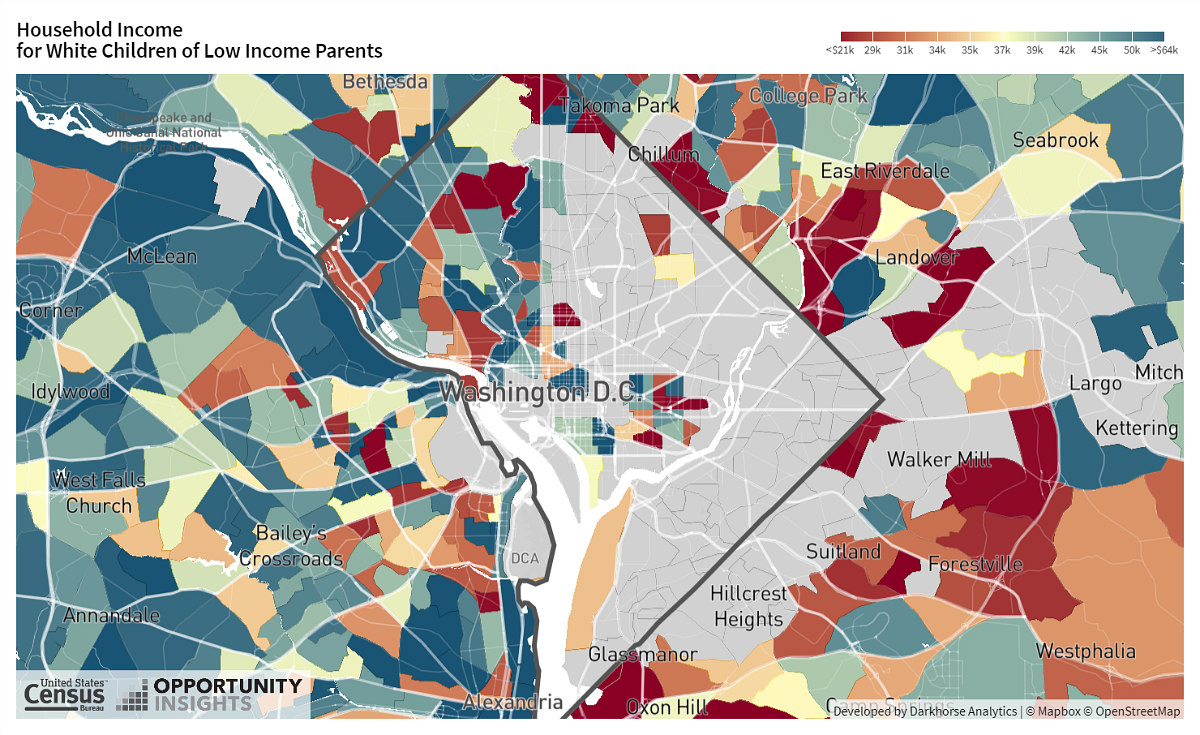
Meanwhile, white children raised in low-income DC households tend to experience less upward mobility in a broader range of census tracts. The tracts where white adults raised in low-income households earn the least are 1600 (Colonial Village and North Portal Estates; expected income of $12,000), 1702 (half of the Takoma neighborhood; expected income of $17,000), 4400 (between S and U Streets, from Georgia Avenue to 14th; expected income of $19,000), and the 8002 (between Lincoln Park and RFK Stadium, from C Street to East Capitol Street NE) and 7000 tracts (between D Street SE and 695, from South Carolina Avenue and 4th Street to 11th Street SE) both with an expected income of $21,000.
story continues below
loading...story continues above
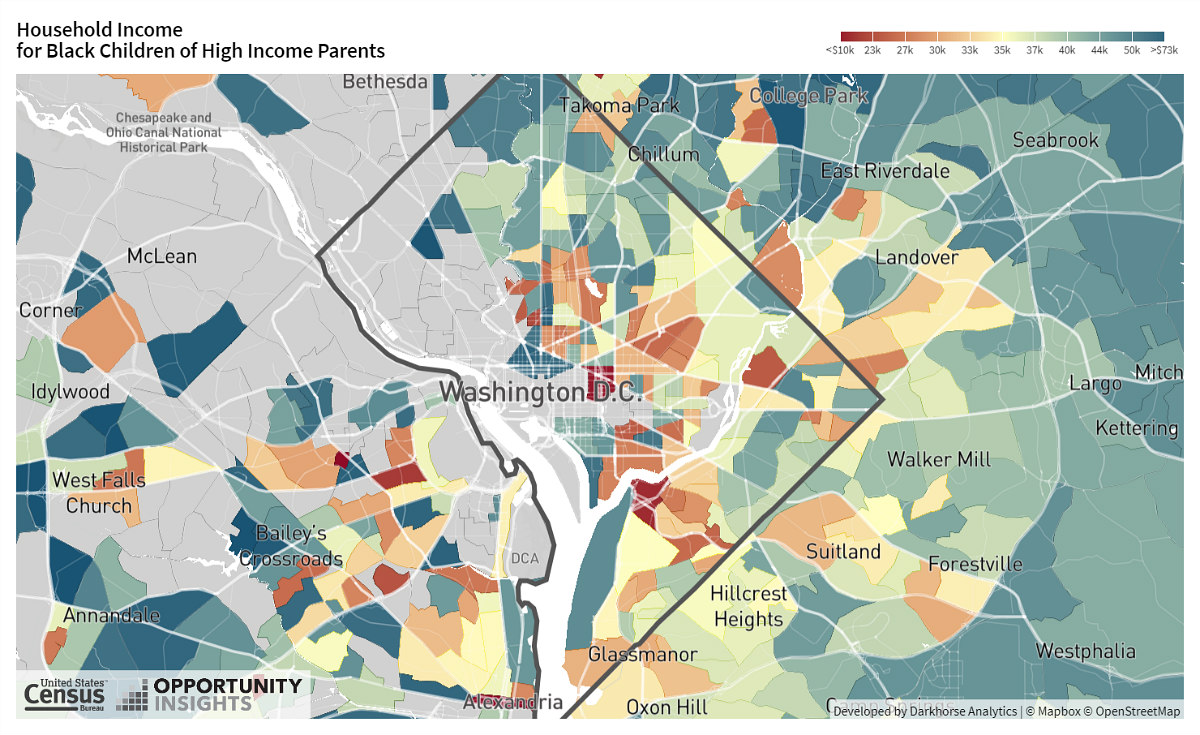
Black children raised in high-income households tend to have no more upward mobility than their low-income peers, with a plurality of pockets in the city where they just make the median income as adults. Particularly for those raised in the 4701 and 4702 (which together form the triangle between New York Avenue, Massachusetts Avenue and North Capitol Street NE) and 5900 tracts (between Massachusetts and Independence/Louisiana Avenues NE, from 6th to North Capitol Street), each with expected incomes of $15,000, and the 7401 tract that covers Barry Farms (expected income of $19,000), Black children in high-income households could find themselves unable to sustain the same income levels as their parents.
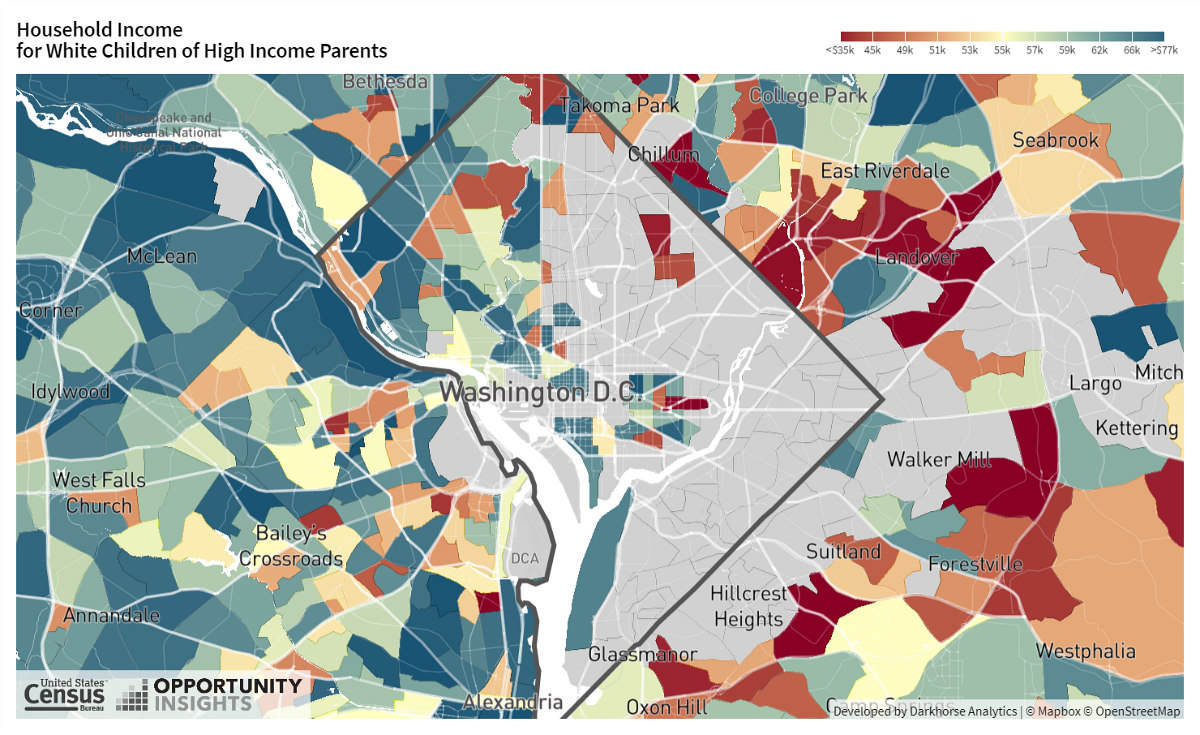
White children raised in high-income households are expected to earn above median income as adults. The most apparent exceptions for children of high-income households are in tracts 9504 (which covers part of North Michigan Park and carries an expected median income of $40,000) and the aforementioned 8002.
It should be noted that because the income ranges for the study are gleaned using percentiles across a national income distribution, they don't translate in proportion to the actual (read: higher-skewing) income distribution observed in the DC area. Researchers from Harvard and Brown Universities, in partnership with the Census Bureau, combed through decades of demographic data to ascertain where in the U.S. children have the greatest opportunity for upward mobility. Using a sample of over 20 million people born from 1978-1983, the researchers predicted the outcomes for people based on which census tracts they spent the majority of the first 23 years of their lives. The study also covers various other demographic stats, such as incarceration rates.
See other articles related to: census, demographics, income, median income, u.s. census, us census
This article originally published at https://dc.urbanturf.com/articles/blog/how-where-you-live-in-dc-affects-your-upward-mobility/14524.
Most Popular... This Week • Last 30 Days • Ever

Rocket Companies is taking a page from the Super Bowl advertising playbook with a spl... read »

As mortgage rates have more than doubled from their historic lows over the last coupl... read »

The small handful of projects in the pipeline are either moving full steam ahead, get... read »

The longtime political strategist and pollster who has advised everyone from Presiden... read »

A report out today finds early signs that the spring could be a busy market.... read »
DC Real Estate Guides
Short guides to navigating the DC-area real estate market
We've collected all our helpful guides for buying, selling and renting in and around Washington, DC in one place. Start browsing below!
First-Timer Primers
Intro guides for first-time home buyers
Unique Spaces
Awesome and unusual real estate from across the DC Metro













